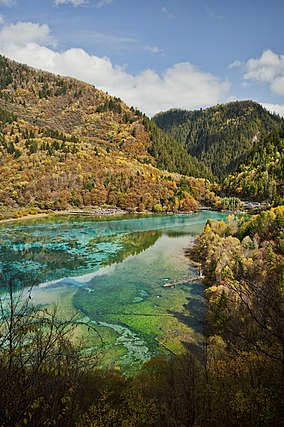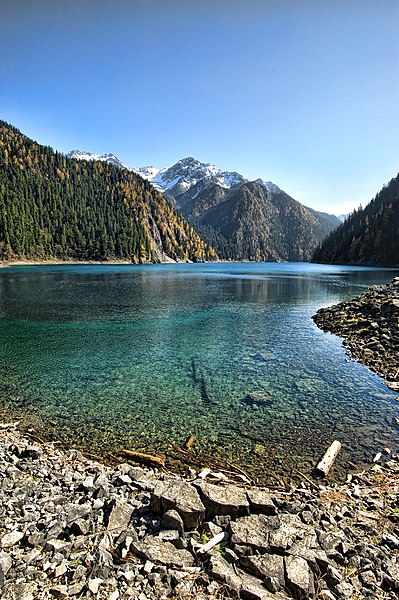It seems to me that America is on the decline. We have a massive budget
deficit (even while not having a budget signed into law). We have a
massive amount of debt. Large numbers of men are avoiding marriage (for
good reason). Our foreign policy is still making us enemies. Our
schools, while still expensive, aren't getting any better. We've
allowed many immigrants who are changing the country rather than their
lifestyles and language. We are about to take the next step towards
socialized healthcare. We have rules and regulations that cover every
aspect of life. Etc.
Where then is, or will be, the best place for an average middle, or lower class, "western" guy to live?
(I'd like to note that this post has not had any research done for it
specifically but instead comes from my interest in geography, culture,
and my extensive reading, including
Roosh and
Naughty Nomad. FYI, my personal travel experience has, so far, consisted of the United States, Canada, China, and England.)
Most countries have something to recommend them, even those not listed
here. Ireland and Scotland have many good points, but I wonder about
the leftist governments so common to Europe. India's economy is
expanding at a similar rate as China's, and I doubt that it would get
boring there, but it doesn't seem to be the most welcoming place for
outsiders, like Japan, and it doesn't appeal to me at all. Israel would
be an interesting place to live but I wouldn't care for the
temperatures or the constant struggle for the country's survival. Roosh
has written very fondly of the girls in Poland, but I don't know what
else it has to recommend it. Etc.
The following places are the ones that I think have an argument for being a good place for a western guy to live.
The Contenders:
-The United States: For much of its history America has been the
greatest country in the world. It has also been the most favored
destination for immigrants. Its problems are large and will be
difficult to fix them.
But it is arguably still the best place to live. We are moving away
from it, but you can still become a self-made success here. There isn't
much, compared to the rest of the world, class warfare or class envy.
America's culture is the culture that is most copied around the world.
There are still many Americans who want America to be great. We could
still list many of the same reasons for living here that our ancestors
had when they decided to move here.
-New Zealand: From everything that I've heard about it, New
Zealand seems to have a similar mode of life as America, and with much
dramatic scenery. I've heard that gun rights aren't as limited as they
are in the rest of the world (that's one reason Australia isn't on my
list). It also has a lot of the hunting and fishing opportunities that I
would be interested in.
My biggest concern with deciding to move there would be that, while it
is interesting, it is not as different from America as the other
countries on this list are. Why would I want to move to a country that
is similar to the one I'd be leaving? Neil Skywalker didn't seem too
fond of the country in his book:
Around the World in 80 Girls.
-Italy: Italy is an interesting country. It has lots of history,
natural beauty, and manufactured beauty. From what I hear it seems a
bit more colorful and crazy than America is. I think that I once heard
Jeremy Clarkson, from the world's most popular car show, Top Gear, say
that the best thing to be would be to be born an Italian male. It’s got
good fashion, fast cars, and great food. Its all manner of
interesting, and not too far from a whole lot of other countries.
But Italy is still a European country with modern European problems,
like the EU and immigration. It seems like a country that is more
different than exotic. I also hear that the women are tough to pull.
-China: For all of the problems that America has, China had them
and seems to be moving away from them. Their economy is improving,
many people, including foreigners, are becoming rich, and life is
cheap. It has more history and culture than any other country. Its
culture is different and more exotic than anywhere else on the list. It
has all of the variety of nature that you'd care to see. Hong Kong was
once one of the greatest places to make money (maybe it still is).
After spending a considerable amount of time with Google Maps' Street
view Hong Kong seems to me to be the most interesting city in the
world. (I had my first legal drink there too.) The food is different
and interesting. I quite like Chinese culture. China was often a
forgotten subject while in school; I wonder if that's a reason why I
like it. Its poor and improving, but if you get tired of living in the
third world there are a few cities that do not differ much in quality
from the cities of the west.
(If you want to be entertained with China as the background, then I
recommend Jian by Eric van Lustbader and any movie directed by Johnny
To.)
But its still a communist country with limited rights, limited speech,
and many rules and regulations. You still need a lot of government
approval to do things. And it is really different from what most
westerners are used to.
-The Philippines: The Philippines gets a ringing endorsement from
Naughty Nomad, for its fun culture and style of life. Many of the
locals also speak English.
But the food is questionable, and perhaps being the "rich foreigner" thing would get tiring after a while.
-Brazil: If I were basing my opinion solely on the women, then
Brazil is where I'd pick. Brazilians seem to have a lot of fun. It is
another economically improving country. And its natural resources are
something else. I quite look forward to fishing for peacock bass.
One of Brazil's big problems is exemplified by its current President,
who is a socialist. As in she once belonged to the Brazilian Socialist
party. When countries improve economically they often add rules and
regulations thinking that they are improving life. What actually
happens is that the citizens lose freedom and liberty. If you look at
any western country it has rules and rules and rules, and then many
regulations dictating every aspect of your life. The U.S. Code has
300,00 pages of rules and regulations which tell us what we can and
cannot do, and how much of it.
-Dubai: This may be the place to make money. And people from all over the world are flocking here.
I doubt that I would care to spend my life in a desert, or in a place
with as many strict Muslims, or any other religion as Dubai has.
Alcohol is illegal here. I also wonder if its boom times are coming to
an end.
It seems to me to be more of a place to stay for a little while, rather than a place to live.
-Singapore: In the lists of the freest places to live Singapore
always does well, along with Hong Kong. It seems to be a place, like
Hong Kong and Dubai, that was created so that people could make as much
money as possible. Dubai seems to be a place that rose from obscurity
quickly; I expect it to decline quickly too. Hong Hong is a part of
China and we don't know what will happen when its 50 years of no change
of government runs out in 2047. Singapore is similar but we can be
surer of its future.
For downsides, Singapore is just a city. It’s a country, but it
consists only a city. This limits your options there considerably.
Deciding to move to a new country has many good and bad aspects. It
would be a dramatic change in life to move to a dramatically new
country. Personally, I like China and Brazil the best for possible
destinations. America is on a decline, we don't know if it will
recover. China is improving dramatically. And Brazil was doing many
good things before they started electing socialists.
If I've missed a good country, let me know.












